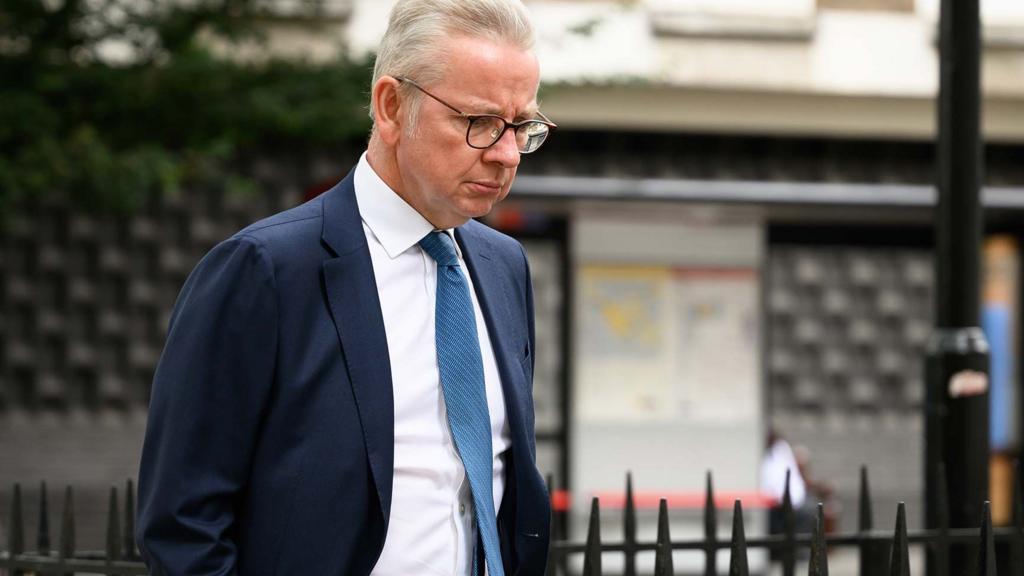Lord Michael Gove, a former cabinet minister, has issued an apology on behalf of the then-government and the Conservative Party for “mistakes made” during the coronavirus pandemic.
The apology follows the publication of Baroness Hallett’s long-awaited report, which details a “toxic and chaotic” culture in No 10 under the leadership of then-Prime Minister Boris Johnson during the Covid crisis.
Speaking on the BBC’s Today programme, Lord Gove acknowledged that some “attitudes” within Downing Street were “far from ideal,” but he contended that in a crisis, “the business of government can’t be carried out in the manner of a Jane Austen novel.”
He further stated that an earlier lockdown would have been “wiser,” while also questioning the report’s assertion that such a measure would have resulted in fewer deaths.
In response to the report, Prime Minister Sir Keir Starmer affirmed that the government would learn from its findings and was already “taking measures to make sure that, not just the NHS but the government as a whole, is prepared for any number of eventualities.”
The 800-page inquiry report delivers a highly critical assessment of government decision-making, suggesting that implementing a Covid lockdown a week earlier could have saved 23,000 lives during the first wave in England. However, it refrains from suggesting that the overall death toll would have been reduced.
The report also posits that lockdowns could have been avoided if the government had introduced restrictions such as social distancing sooner and concludes that lockdowns “only became inevitable because of the acts and omissions of the four governments” in England, Northern Ireland, Scotland, and Wales.
The report characterizes February 2020 as a “lost month” and deems the government’s lack of urgency “inexcusable.”
It further asserts that there was a failure to learn from the first Covid wave, resulting in the delayed implementation of restrictions in the autumn of 2020.
Regarding Christmas of the same year, the inquiry argues that governments failed to take action “until infection levels were critical.”
Johnson, who served as prime minister from 2019 to 2022 and initiated the inquiry, is accused in the report of failing to make timely decisions in the autumn of 2020 and of repeatedly changing his mind.
He has been contacted for comment.
Lord Gove dismissed the notion that the Covid report’s conclusions would hinder any future political aspirations Johnson might harbor.
He acknowledged that Johnson’s decision-making style “may not be to everyone’s taste” but added that he was “wrestling with an enormously difficult question about the curtailment of liberty and the maintenance of access to healthcare.”
“More than that, without his drive we would not have had his vaccine roll-out that ensured we were the first country to put jabs in arms.”
Dominic Cummings, a senior aide in Downing Street at the time, is singled out for criticism in the report, which suggests he displayed “destabilising behaviour” and contributed to a “culture of fear” that “poisoned the atmosphere.”
The report stated that he had “materially contributed to the toxic and sexist workplace culture” but also praised him as being a catalyst for action and being one of the first political figures to demand strategy meetings and modelling on the virus.
Mr. Cummings, who departed from No. 10 at the end of 2020, accused the inquiry of enabling “a vast rewriting of history.”
He stated on social media that it was “important for the public to realize that on most of the big questions, the ‘experts’ including the senior scientists were completely wrong” in the early months of 2020.
The BBC had previously contacted Mr. Cummings regarding his response to the report.
Lord Gove stated that Mr. Cummings had been responsible for ensuring that data was “accurately and thoroughly interrogated.”
He also noted that the report acknowledged Mr. Cummings’ interventions as being “critical to putting in place the measures necessary to suppress the virus.”
When questioned about the culture in Downing Street, he responded, “It’s the case that we were dealing with, as everyone in the world was, an unprecedented crisis… and of course, under pressure with imperfect information, mistakes are made, voices are raised.”
Rishi Sunak, who served as chancellor during the pandemic, told BBC 5 Live’s Matt Chorley that both the government and scientists had been “operating in a highly uncertain environment.”
“I think we do need to view the decisions taken through that lens, but it’s important that lessons are learned so that we can be better prepared if there’s ever another pandemic.”
Baroness Hallett also directed criticism toward Sir Chris Wormald, the current cabinet secretary and the most senior civil servant in the government, who served as the permanent secretary at the health department during the pandemic.
She asserted that he had failed to take action to “rectify the overenthusiastic impression” conveyed by then-Health Secretary Matt Hancock regarding the department’s ability to manage the pandemic.
When asked on Radio 4’s Today programme whether Sir Chris should remain in his position, given the report’s criticism, Science Secretary Liz Kendall responded “yes,” adding that he was doing “excellent work across government including learning the lessons from this pandemic.”
Former Tory MP Michael Gove reveals his change in position over a second vote.
The veteran former cabinet minister is among several Conservative figures to be given peerages.
The action relates to the granting of planning permission for 165 houses at Turnden, near Cranbrook.
An expert says a meeting with Michael Gove about the poisonings showed he “had not been briefed”.
The former minister opens up about his most difficult moments in politics, in his new BBC series.

